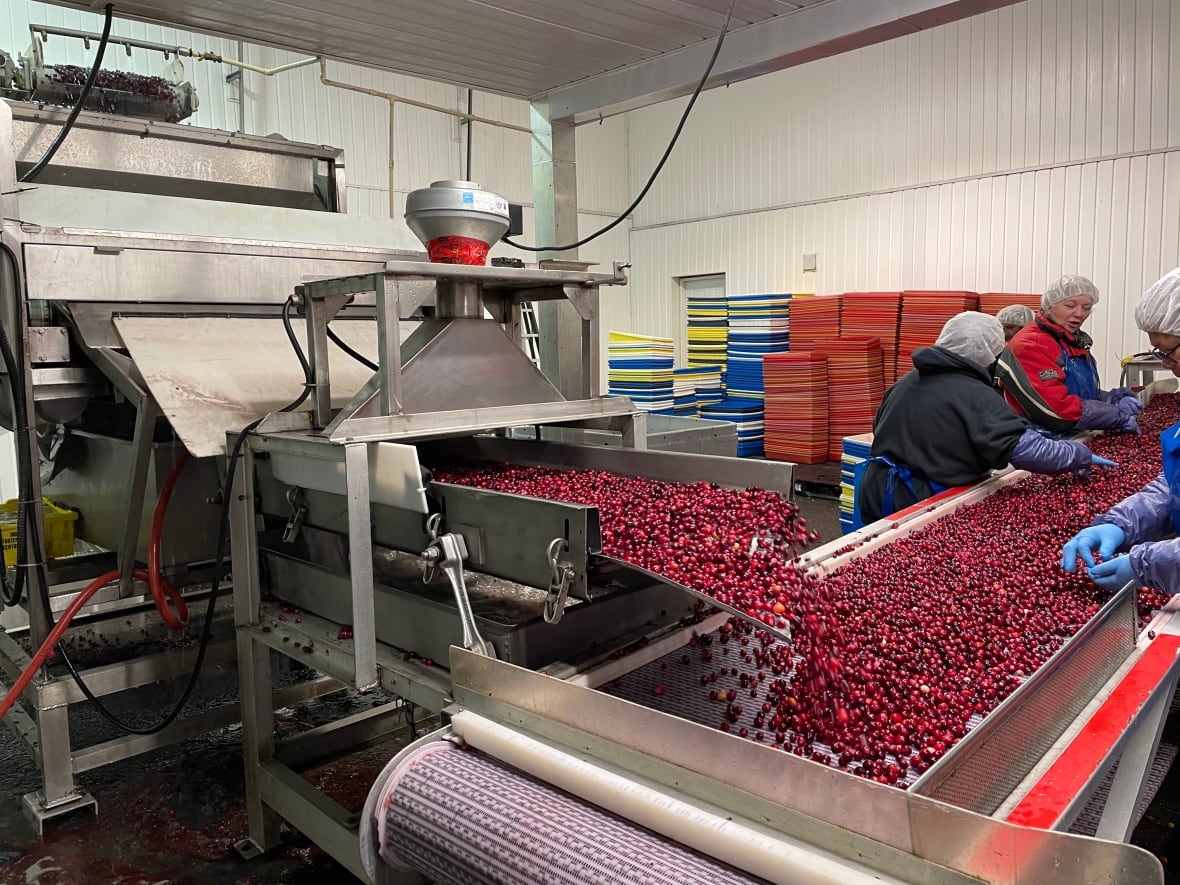This N.L. cranberry farmer stuck it out through tough times, and now hopes to harvest the benefits
Government support for cranberry operations dried up about a decade ago

A decade ago, the cranberry farming business was something of a darling for the Newfoundland and Labrador government, getting big bucks and support.
Now, after all that funding has long since dried up, the province's remaining farmers are still trying to make a go of it.
In 2014, there were 15 cranberry farms in operation in the province. It looked like the industry was poised for a boom.
Federal and provincial governments allotted more than $12 million to develop farms under the Cranberry Industry Development Program, a five-year program established in 2008. But a 2015 auditor general report found only $5 million of those funds had been spent as intended and there was a lack of oversight.
There are now nine cranberry farms in the province, one of which is run by Cory Reid of Recon Development Farm in Bishop's Falls.
"When we started this," he said, "It was supposed to be good because the price was decent, but then once we got to harvest, the price dropped significantly for five, six years. So it was a struggle for a lot of people in a few years, but it's on the rebound again now."

Those who stuck with cranberry farming are now starting to see the results, he said, adding it can take five to six years from planting to when first harvest is ready.
"So you get years of maintaining weeds and water and fertilizer. And so it takes a lot of time to get going. But once it's here, now they'll be here 150 years or longer," said Reid.

There have been some other challenges for Newfoundland and Labrador's cranberry farmers since government support dried up.
The farmers previously sold their little tart berries to Indian Bay Frozen Foods, which would sell overseas, but the owner decided to leave the industry. The farmers then came together as a co-operative to buy the company, forming Cran-Pac Foods in 2019, which is based in Centreville-Wareham-Trinity.
Cran-Pac Foods manager Darlene Gover is also optimistic that things are set to change.
"I think we've come a long way since 2014. In 2014, the owners were still just farmers. It was nowhere near our volumes," said Gover.
Previously with Indian Bay Frozen Foods, their largest amount of cranberry was 600,000 pounds. This year, she estimates it will be just short of three million pounds.
"This will be our best year," said Gover.

Through Cran-Pac Foods, Reid said Newfoundland and Labrador cranberries are sold to buyers in places like Germany, China and Chile.
"We sell some to Newfoundland, a few bakeries and stuff, and Purity," Reid said, but the majority is exported.
Gover said the export business is doing well, but she'd like to see more cranberries sold in the province. It can be a challenge to get people to try the tart berry, though.
"Cranberry is not like tasting a blueberry," she said.
She'd also like to see Cran-Pac Foods open its own processing plant in the province.
Download our free CBC News app to sign up for push alerts for CBC Newfoundland and Labrador. Sign up for our daily headlines newsletter here. Click here to visit our landing page.
With files from Leigh Anne Power

